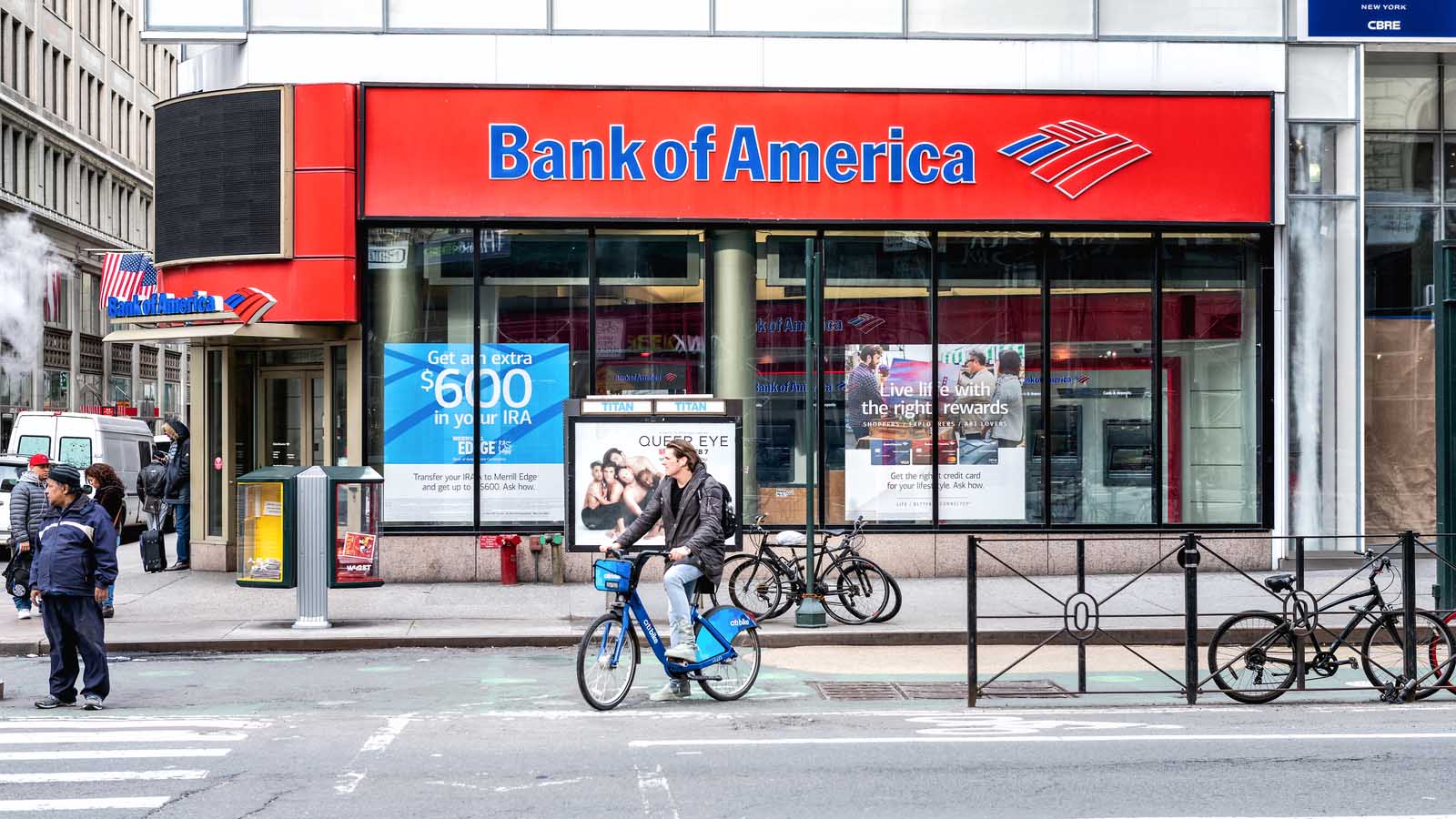Shares of Bank of America (NYSE:BAC) are up 22% year-to-date, putting the stock ahead of the Financial Select Sector SPDR (NYSEARCA:XLF), the largest financial services exchange-traded fund, by about 220 basis points.

Impressively, Bank of America stocks is up nearly 11% this month. Prior to today’s Federal Reserve rate cut announcement, an array of banks, including BAC, warned about the impact of lower interest rates on net interest margins during their second-quarter earnings calls. In fact, that issue was one of the primary takeaways from banks’ most recent round of of earnings updates.
Bank of America rivals, such as JPMorgan Chase (NYSE:JPM) and Wells Fargo (NYSE:WFC), are already complaining that lower interest rates are weighing on earnings. All that simply because of a mere eight-basis point squeeze (on average) in net interest margins.
As is the case with its competitors, lower rates are a real consideration with Bank of America. And they likely explain why analysts have recently grown bearish on the name. On Aug. 29, Raymond James lowered its rating on Bank of America stock to “market perform” from “outperform.” A week later, Keefe, Bruyette & Woods did the same thing, while slashing its price target on BAC stock to $29 from $36. The shares closed just under $30 on Sept. 17.
“… in a falling rate environment where the yield curve remains inverted, we believe that creates an environment where it will be difficult for shares to outperform and a Market Perform is appropriate,” said KBW’s Brian Kleinhanzl.
Dueling Views On BAC Stock
Other headwinds for Bank of America stock include speculation that the economy is slowing and the lingering U.S.-China trade war. Those two issues are joined at the hip. If the U.S. and China cannot come to terms on trade, both economies will suffer. If the U.S. economy languishes, lending will contract, putting further strain on the financial services sector.
Additionally, the Fed is said to be “data dependent.” This means that economic reports revealing a slowing economy, will prompt the central bank to step in, likely with lower interest rates. This would further suppress interest margins for money center banks.
One area of good news is that, in recent weeks, President Donald Trump appeared eager to work with China on trade, even implying that a resolution could be realized over the near term.
Another factor, albeit wider-ranging in nature, is the recent rotation out of growth stocks into value names. BAC stock is a value play. The S&P 500’s Value Index allocates 21.8% of its weight to financial stocks, about 550 basis points more than the benchmark’s second-largest sector allocation.
At 9.9 times forward earnings and 1.1 times book value, BAC stocks fits the bill as a value name — and one that could benefit from a lengthy growth-to-value rotation.
The Bottom Line on Bank of America Stock
The Fed has set the stage for banks to boost buybacks and dividends. Yielding just 2.4%, Bank of America stock has ample room for dividend growth.
Additionally, BAC has enviable market positions across an array of pivotal financial services and products. According to Morningstar, Bank of America is racking up accolades in investment banking, credit cards and several other financial services.
That gets investors to a compelling long-term story with short-term macro issues with Bank of America stock.
As of this writing, Todd Shriber owns shares of XLF.
